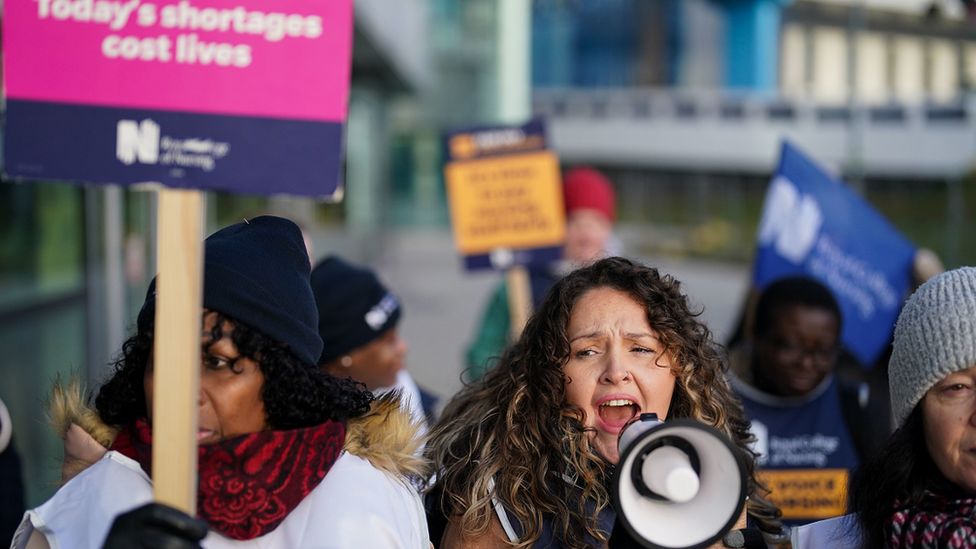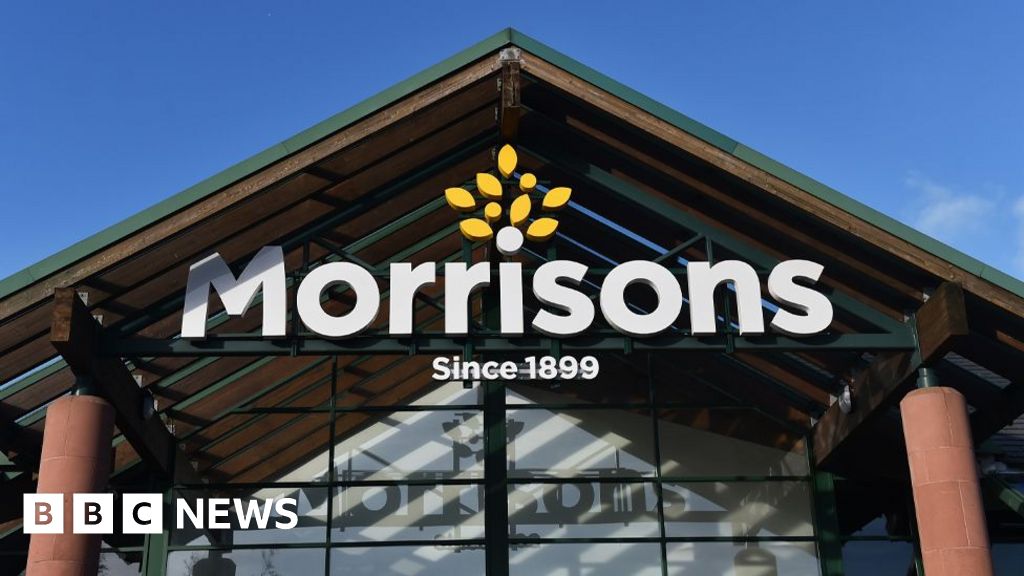 Image source, PA Media
Image source, PA Media
By Nick Triggle
Health correspondent
The government's pay offer to consultants in England will cause fury among nurses, union leaders say.
The amount on offer to the most senior doctors in the NHS was "galling", the Royal College of Nursing said, and increased the likelihood of fresh strikes.
Some consultants could see their pay rise by nearly 20% this year under the deal, announced on Monday.
Nurses were given 5% extra this year and a one-off sum of at least £1,655.
'Unfinished business'
RCN chief nurse Prof Nicola Ranger said: "Nursing staff will be appalled by this announcement and where it leaves them.
"The government has shown it has the political will to reform pay for some of the highest earners in the NHS - while our members are left with the lowest pay rise in the public sector."
The offer would "ignite our members' fury further, making nursing strikes more likely in the future", Prof Ranger said.
The deal for nurses and other health workers was put forward in March.
RCN members rejected it - but because most of the other health unions representing the likes of ambulance workers, porters and physiotherapists backed it, the government imposed the deal.
The RCN then balloted for strike action but failed to reach the threshold required for the vote to count.
RCN sources said there remained "unfinished business" in their dispute and the union would now be monitoring the views of members before deciding what to do next.
The union also highlighted the deal's significant streamlining of consultants' pay bands, to try to ensure quicker progression from bottom to top.
"Nursing staff work closely with consultants and we too have campaigned for years to have quicker progression through the pay scale," Prof Ranger said.
"This would help recognise nurses' safety-critical and lifesaving skills - and yet many spend most of their career stuck on the same NHS pay band.
"It's galling that almost 12 months since nursing staff took the unprecedented decision to strike, our pay dispute remains unresolved and the government continues to undervalue our profession."
If British Medical Association members vote to accept the deal next month, many consultants will see the 6% pay rise they have already received this year topped up from January.
Members of the much smaller Hospital Consultants and Specialists Association union will also be asked for their view.
Consultants in the middle pay band will receive nothing extra.
But the rest will have a range new pay rises, with some receiving as much as 12.8% extra on top of the 6%, meaning their pay will have risen by nearly a fifth over the course of the 2023-24 financial year.
In total, an extra 4.95% is being invested into the pay pot for consultants - but concessions have been made, including the scrapping of some merit awards, effectively a system of bonuses.
'Reasonable offer'
The offer comes after consultants in England have taken part in nine days of strikes in their dispute over pay. The last was in early October.
The government is also in negotiation with junior doctors over pay. They have been involved in numerous walkouts over the past year, but no deal has yet been reached with them.
The deal was signed off by Health Secretary Victoria Atkins just two weeks after she was appointed to the job. Talks had first started under her predecessor Steve Barclay.
BMA consultants leader Dr Vishal Sharma said he was pleased there had been a breakthrough, but added: "It is a huge shame that it has needed consultants to take industrial action to get to this point."
Ms Atkins said it was a "fair and reasonable offer" that would also help modernise the contract, address gender pay issues and enhance parental leave options.
"Putting an end to this strike action will support our efforts to bring down waiting lists and offer patients the highest-quality care," she added.
Strikes by NHS staff have caused more than one million treatments and appointments to be cancelled, and cost the health service £1bn in premium payments and planning and preparation.
Prime Minister Rishi Sunak has blamed them for the failure so far to bring down England's hospital waiting list, which is currently at a record high of 7.8 million.
Consultants had originally asked for an above-inflation pay rise this year - a figure in excess of 11% had been floated - and a commitment to start restoring pay in future years.
The BMA had argued that since 2008, pay levels had fallen significantly once inflation was taken into account.
Related Internet Links
The BBC is not responsible for the content of external sites.
 (1).png)
 1 year ago
12
1 year ago
12













